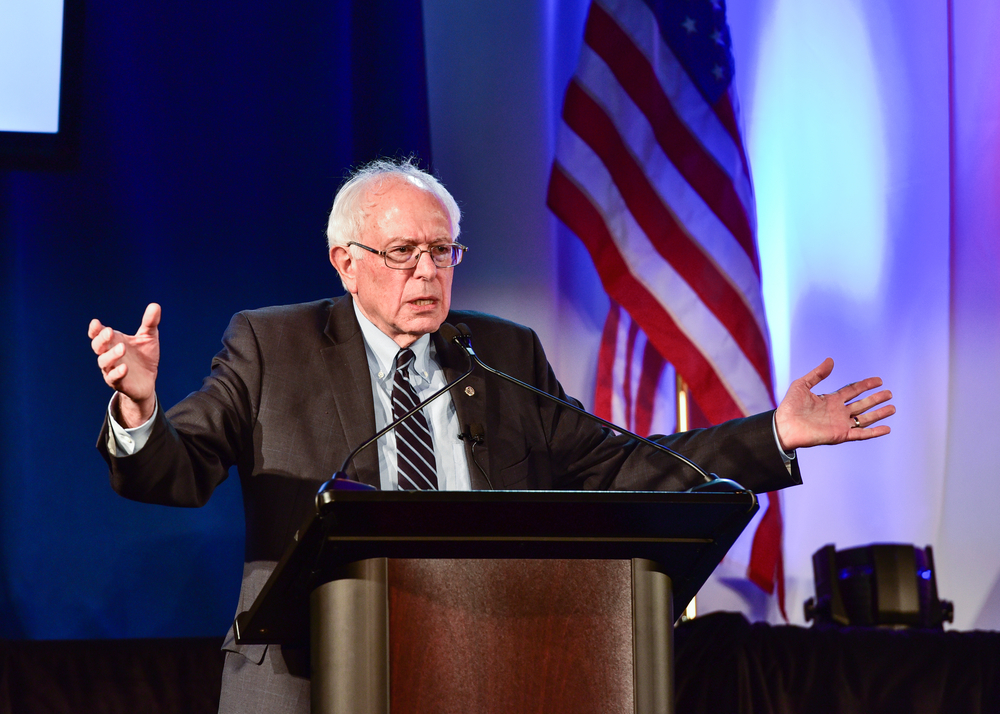Bernie Sanders, the Independent Senator from Vermont, is pushing for a significant increase in the federal minimum wage to $17 per hour. However, his efforts have encountered obstacles both within and outside the Democratic caucus, highlighting the longstanding struggle to raise the minimum wage over the past decade.
Sanders, who chairs the Health, Education, Labor, and Pensions Committee, announced his intentions to prioritize the bill in May, with a planned markup scheduled for June 14. However, several weeks later, the committee passed a series of labor legislation focused on Democratic priorities, excluding Sanders’ minimum wage bill.
When questioned about the exclusion of his bill, Sanders responded, “You can’t do everything every day. We are going to deal with the minimum wage.” Nonetheless, the challenges of advancing the legislation within the committee and in the full Senate and a Republican-controlled House underscore the difficulties Congress has faced in raising the federal minimum wage above $7.25.
While there is a widespread consensus that the current figure is insufficient for today’s economy, the reluctance of progressives to settle for a lower number than $15, combined with conservatives’ opposition to a higher wage, has resulted in a lack of pay raises for low-wage workers in 20 states since 2010.
Are you being paid what you’re worth? Find out with LawCrossing’s comprehensive salary surveys.
One significant challenge for Sanders is securing the full support of Senate Democrats. Eight Democratic caucus members, including Maggie Hassan of New Hampshire, who sits on the HELP committee, voted against the inclusion of a $15 minimum wage bill in the 2021 Covid-19 rescue package. Furthermore, there is insufficient Republican support to reach the 60-vote threshold required to pass most legislation in the chamber.
Bridging the gap between different perspectives on the minimum wage has proven difficult. The federal minimum wage has remained stagnant at $7.25 for 12 years, the longest period without an increase since its establishment in 1938. As a result, many states have independently raised their minimum wages above the federal level, with 30 states currently surpassing it, and some even exceeding $15 per hour.
Advocates argue that the reluctance of certain states, particularly in the South, to raise their minimum wages necessitates a higher national rate. Sanders and other proponents contend that the new figure of $17 better reflects the needs of low-wage workers in the current economy, taking into account two years of high inflation, and would provide a “living wage” across the country.
However, the $17 proposal is facing opposition from Republicans in Congress, with some suggesting a lower increase. Senators Mitt Romney (Utah) and Tom Cotton (Arkansas) previously introduced a bill that would gradually raise the minimum wage to $10 per hour over three years. Senator Bill Cassidy (R-Louisiana), the ranking member of the HELP committee, believes that a proposal similar to the Romney-Cotton legislation could attract enough Republican support.
Certain Democrats may also be satisfied with a more modest increase. Senator Joe Manchin (D-West Virginia) previously proposed raising the minimum wage to $11 in 2021 during debates over the federal pay update in the Covid relief package. However, he now suggests a figure in the “$12 range.”
According to an Economic Policy Institute model, raising the minimum wage to $12 per hour would benefit over 8 million workers. Nevertheless, progressives may hesitate to compromise on the issue, as they have campaigned for larger increases and believe that public opinion supports a more substantial raise.
Lawmakers are also considering the subminimum tipped wage, which permits employers to pay tipped workers a lower rate unless they spend a significant portion of their workweek performing non-tipped duties. Some senators, particularly those from New England, are not in favor of eliminating the tipped wage. Sanders’ previous proposal aimed to establish a $15 minimum wage for all workers, eliminating the lower rate currently set at $2.13 for tipped workers.
The absence of the minimum wage bill during the June markup session for other labor priorities could be attributed to ongoing discussions surrounding the tipped wage. Advocates speculate that this issue poses a significant challenge to reaching a consensus. While some compromises, such as lengthening the phase-in period for the tipped rate to match the minimum wage, may be possible, there are differing perspectives on the matter.
Sanders’ push for a $17 minimum wage faces obstacles within the Democratic caucus and from Republicans, highlighting the longstanding challenges of raising the federal minimum wage. Disagreements persist regarding the optimal figure and the treatment of tipped workers, making it difficult to find common ground and pass legislation that would provide significant pay raises to low-wage workers across the country.
Don’t be a silent ninja! Let us know your thoughts in the comment section below.

